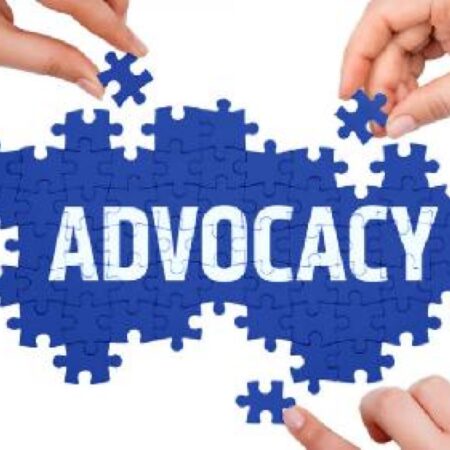
Take Policy Back From the ‘Economic Hit-men’
Everyone is familiar with “Economic Hit-men” and what they do to poor countries. Many Pakistani TV commentators and columnists have been referring to “Economic Hit-men” but mainly in the context of debt. However, Hit-men have evolved beyond the book and operate much more subtly now. Now they control of policy through a monopoly on thought and research.
They also have huge advocacy funds (20-500 million dollars) where they can buy local intellectuals and media space. Through such activities, they define poor societies for all including the country’s citizenry. Inundated with this advocacy, local talking heads and groups start repeating advocacy mantras. NGOs are set up to run campaigns and project the visions and characterizations of poor countries that they want.
One such important advocacy campaign is run by Adam Smith International; a firm that is under scrutiny by UK parliament. It is a campaign to tell us that we are all tax cheats and that there is a need to tax us more. You can see donors and their consultants united in an analysis suggesting that the only way forward is more taxes regardless of bad policy or poor expenditure management.
Meanwhile, poor Pakistan suffers probably the most messed up tax policy anywhere is the world. (To see how bad our policy is, see writings of Huzaima and Ikram ul Haq). Instead of fixing the policy, every few months, consultants give the government a new list of arbitrary taxes to add to the mess. Almost all are paying income tax through withholding taxes on mobile calls, electricity and many other services.
Strangely enough our leaders, bureaucrats, intelligentsia, never challenge this disparaging of our people; instead they feed it.
Advocacy funds have been charged to tell us that we are bad and we do not pay our taxes. This rules out all sensible debate on this issue. They never respond to “what should I pay more for?” or “are government expenditures being used wisely?”
Why give more to a government that spends on whimsical projects and doesn’t use it’s assets (railways, city real estate, PIA, etc.) wisely?
Bad policy pushed by advocacy is overburdening our economy, and that is also something they don’t want us to see.
Government can also tax people through several methods other than taxation. For example, banning activities operates like a tax. Think about it; private sector media activity was not allowed for decades. Several high paying occupations (e.g. journalists, actors, commentators, producers and directors) have opened now. It is easy to see that the ban imposed a huge tax burden on society. Even today policy continues to restrain activities such as large construction, development of inner city commercial and leisure activities. One can only wonder at the cost to society.
Consider also how government owned companies through use of taxpayer funds as well as favorable treatment can crowd out private activity in various sectors. A glaring example is the construction sector where government companies are often favored with non-competitive awards. Airline, airport, gas development distribution and agricultural procurement are other areas where the government either monopolizes or heavily distorts competition.
Policy also gives protection to cars and engineering goods. It also gives exemptions to chosen activities or industries (e.g. electrical goods). In both cases prices in domestic markets exceed international market prices. People are forced to buy goods of lesser quality than available internationally. This is a tax for consumers which beneficiary industries (not government) collect in the form of profits. The cost of these polices to the government is about 3 to 4 % of GDP. The important point to note is that consumers have paid this tax. Change these policies and increase revenue by 3 to 4% of GDP and stop calling people cheats.
Government perks and privileges also tax burden. Take for example the large amount of tax-free compensation that government servants receive in the form of perks (houses, cars, servants, utility bills, plots). Monetization could increase revenue collection. Prime real estate for the providing housing and leisure activities to officials could be released for development. A Planning Commission for such a reform limited only Islamabad could increase investment potential by trillions of rupees. Capital thus created would expand the tax base.
The perks culture has also held real estate development hostage for decades as officials seek to reward themselves through plots. Government sponsored developers such as the DHA and Coop societies dominate the real estate market, creating a plot culture and holding private real estate development hostage.
Merely changing government policies in these few areas would allow the economy to grow as well as increase tax/GDP ratio way more than donor-advocated policies of taxing milk school fees and mobile phone calls. And there are many more that I will not discuss here.
We need to take back our policy from the ‘hit-men’ and their advocacy funds. “Donor-advocacy” suggests that good policy is to leave expenditures and the structure of the economy alone and rely on imposing arbitrary taxes on milk, SMSs and the internet is good policy. It is not! Besides why would you want to give wasteful setup more money without reforming it?
Advocacy is mindlessly taxing an already overburdened economy, labouring under the yoke of inefficient regulation, excessive and poor quality PSE intervention, an incentive structure of officials that precludes economic activity.
An earlier version of this text appeared in the Pakistan Today newspaper. Available at: https://www.pakistantoday.com.pk/2017/02/13/take-policy-back-from-the-economic-hit-men/#.XsDyJ8lYKXE.whatsapp



